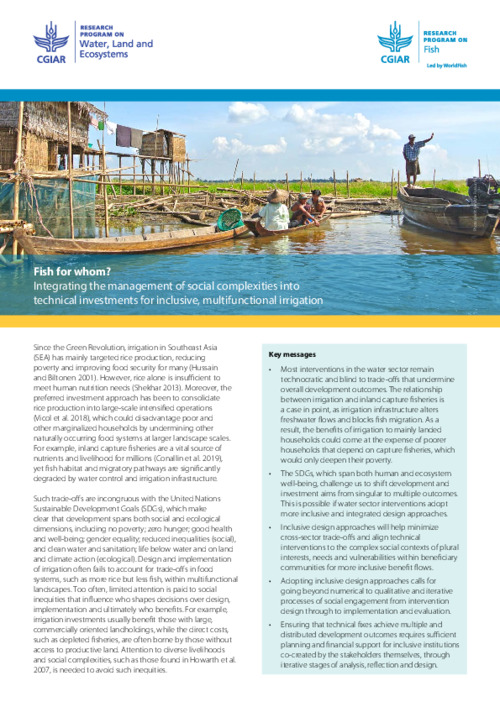Fish for whom? Integrating the management of social complexities into technical investments for inclusive, multifunctional irrigation

Most interventions in the water sector remain technocratic and blind to trade-offs that undermine
overall development outcomes. The relationship between irrigation and inland capture fisheries is
a case in point, as irrigation infrastructure alters freshwater flows and blocks fish migration. As a result, the benefits of irrigation to mainly landed households could come at the expense of poorer
households that depend on capture fisheries, which would only deepen their poverty.
The SDGs, which span both human and ecosystem well-being, challenge us to shift development and investment aims from singular to multiple outcomes. This is possible if water sector interventions adopt
more inclusive and integrated design approaches. Inclusive design approaches will help minimize
cross-sector trade-offs and align technical interventions to the complex social contexts of plural
interests, needs and vulnerabilities within beneficiary communities for more inclusive benefit flows. Adopting inclusive design approaches calls for going beyond numerical to qualitative and iterative processes of social engagement from intervention design through to implementation and evaluation.
Ensuring that technical fixes achieve multiple and distributed development outcomes requires sufficient planning and financial support for inclusive institutions co-created by the stakeholders themselves, through iterative stages of analysis, reflection and design.
Permalink
Date Available
Type
Publisher
Copyright
CC-BY-NC-4.0
Research Themes
Language